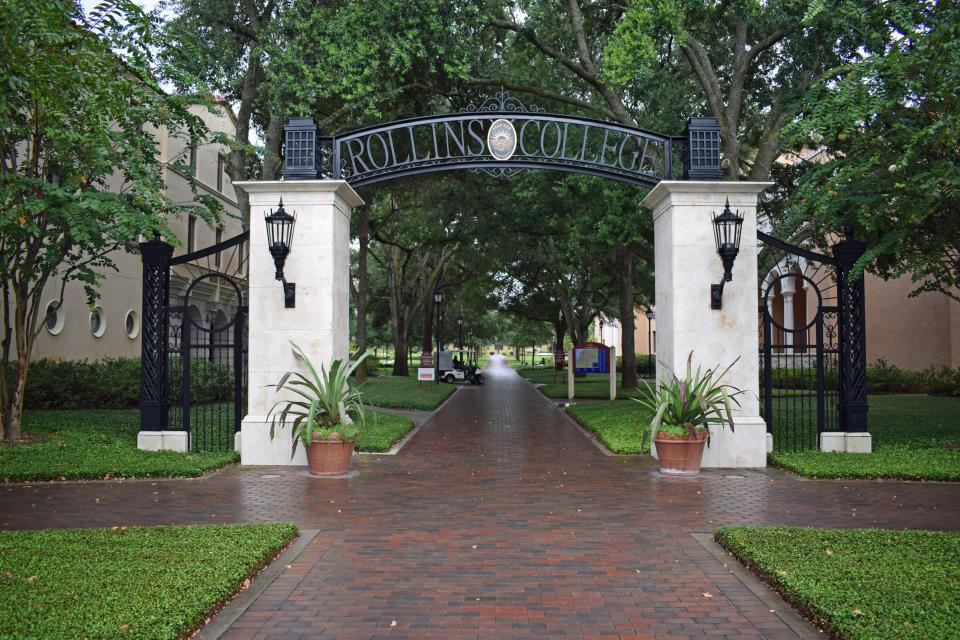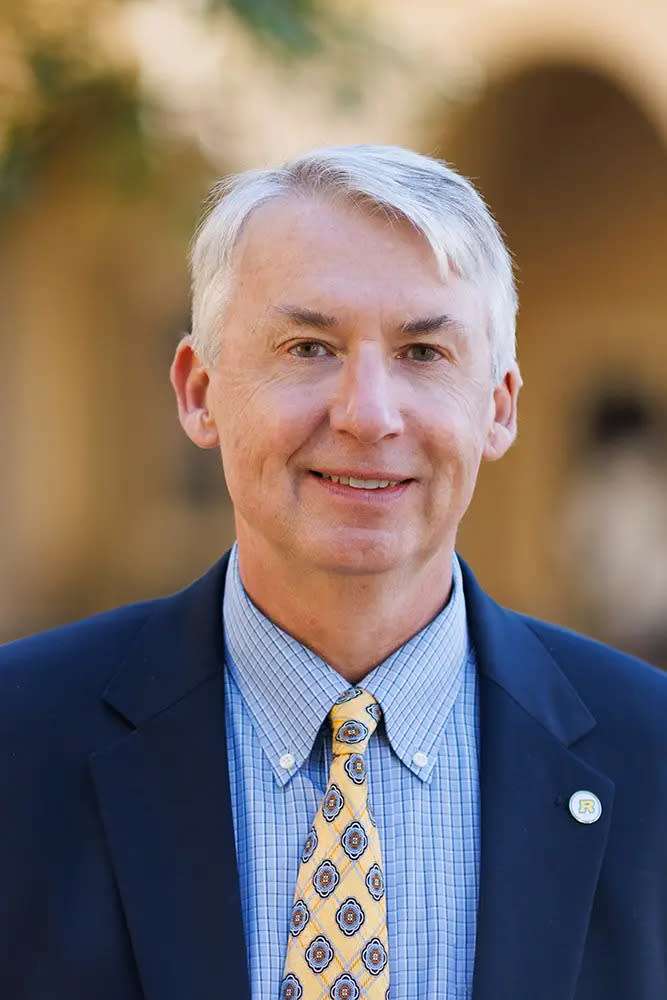Parents, politicians don't decide college curriculums. Trust universities to do their jobs.
- Oops!Something went wrong.Please try again later.
America’s great contribution to the world history of politics and civil society has been its grounding in the ideal of freedom. In America we celebrate as inalienable rights, life, liberty and the pursuit of happiness. We deplore authoritarianism, and we generally recoil at being told by the government what to think, do or say.
In a recent op-ed, David Warren, former president of the National Association of Independent Colleges and Universities, reminded us of the Supreme Court decision in a 1957 opinion on Sweezy v. New Hampshire, wherein Justice Felix Frankfurter identified what he saw as the four freedoms essential to a university: “to determine for itself on academic grounds who may teach, what may be taught, how it shall be taught, and who may be admitted to study.”
Every one of these four freedoms is under pointed and aggressive assault by governors and state legislatures across the country and, of course, in the recent U.S. Supreme Court decision regarding the consideration of race in college admissions. Of all the troubles beleaguering higher education, this is an existential threat to vital American institutions and the principles essential to their mission.
Freedom of inquiry and freedom of expression
The world-class standing of American higher education that has been built over decades, sustained through generations, and that is unparalleled as an institution in the history of civil society, owes its ascendancy and accomplishments to one ideal: freedom of inquiry and its corollary, freedom of expression.
Politicians try to undercut colleges. Despite the consequences, we must speak up.
The first principle of research and the search for truth is that you go where the evidence leads you, motivated by an ethic of objectivity and free of pressures to tip the scales to please anyone – or worse, out of fear of reprisal. In science, history and law, it is the facts of the matter, in all of their complexity and sometimes dark revealing, that must be examined without hindrance.
You do not shy from findings or arguments because they are unexpected or uncomfortable; you don’t withhold findings because they are unpopular or because they might offend. And you never stifle the method of testing findings by putting them into the public realm for scrutiny, examination and criticism.

Karl Popper, a philosopher of science of the 20th century, addressed the methods of open inquiry in this way: “If you are interested in the problem which I tried to solve by my tentative assertion, you may help me by criticizing it as severely as you can; and if you can design some experimental test which you think might refute my assertion, I shall gladly, and to the best of my powers, help you to refute it.”
Popper’s methodology requires both permanent, principled openness and freedom to contest authority or received wisdom. It is an epistemology of criticism and critical thinking, the idea that knowledge grows through the open contest of ideas.
This basic idea does not pertain to the sciences alone, of course. It is the cardinal premise and process of all scholarly inquiry. And it is through this method that knowledge has advanced and grown exponentially in every field of inquiry over generations of research and open examination.
The genius of this system of knowledge production is its commitment to freedom of inquiry and expression, and the open contest of ideas. This is what gives the system integrity, and it is why the enterprise has been one of the most productive and successful in human history.
Put more pointedly, it is the freedom from interference from political pressure or the policing of inquiry or expression by the state that is the sine qua non of scholarship, the pursuit of truth and, I would add, teaching with integrity. There are a couple of corollary principles and practices of the American university system that are derived from this core idea of freedom of inquiry and expression.
What can you say on college campuses? Why conservative and transgender people feel excluded.
Parents don't decide the curriculum. Trust university faculty to do their jobs.
The first is the principle that is held sacrosanct at any college or university worthy of its name: The faculty of a university has authority over the curriculum. The faculty is entrusted to use its combined expertise in the disciplines of knowledge and in pedagogy to decide what is taught and how it is taught.
Parents don’t decide. Popular public opinion has no bearing. Boards of trustees or boards of governors don’t decide. Neither does the president nor the provost stipulate the curriculum.
And certainly, most certainly, politicians do not determine what is taught or how it is taught.
Opinion alerts: Get columns from your favorite columnists + expert analysis on top issues, delivered straight to your device through the USA TODAY app. Don't have the app? Download it for free from your app store.
The other corollary is the institution of tenure. Tenure is a hard thing to understand outside of the academy because it is thought to be some kind of job security irrespective of behavior or performance. It is not that.
Tenure is awarded on the basis of years of trial, scrutiny and peer review. Its purpose is to create a context of free inquiry and expression for professors so that they can pursue truth, and profess their expertise in the classroom and in scholarly writing, unfettered by the need to please or appease the administration, the trustees or politicians.
Again, professors in the American academy do not profess state-sanctioned doxa, but the disciplines in all of their independent rigor.
What the “anti-woke” activists are concerned about is indoctrination standing in the place of teaching. I would share that concern and would oppose it in all cases where these concerns have merit, but I don’t recognize this as what we actually find taking place on our campuses or in our classrooms.

I would hazard that it is one in a thousand critics who has ever stood in front of a college classroom practicing the craft faculty do with such thoughtful integrity. What faculty know that they don’t is that the accusation of ideological indoctrination is not only deeply insulting to their professional ethics, but it is also profoundly condescending to university students, as if they don’t come to college with their own critical acumen and independence of thought.
As someone who has spent decades as a professor, I can attest that university students engage their education – not as blank slates to be written on by the professor, but as independent minds each in a noble struggle to discern what is true and what is to be done.
The irony that freedom of inquiry, research and teaching is being thwarted in the name of freedom is bitter. The concern is that professors are policing thought and expression in their teaching and the remedy being deployed is to police thought and expression in their teaching. I am deeply concerned about this intervention because it undermines the integrity of the great institution of the American university. It is, in a word, un-American.
Grant Cornwell is president of Rollins College in Winter Park, Florida. This column first published on northjersey.com
You can read diverse opinions from our Board of Contributors and other writers on the Opinion front page, on Twitter @usatodayopinion and in our daily Opinion newsletter. To respond to a column, submit a comment to letters@usatoday.com.
This article originally appeared on NorthJersey.com: Freedom of speech is crucial to college. Stop trying to end it

